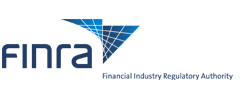
Goldman, Sachs & Co. Fined $22 Million for Supervisory Failures Relating to Trading and Equity Research
WASHINGTON — The Financial Industry Regulatory Authority (FINRA) today announced that it has fined Goldman, Sachs & Co. $22 million for failing to supervise equity research analyst communications with traders and clients and for failing to adequately monitor trading in advance of published research changes to detect and prevent possible information breaches by its research analysts. The Securities and Exchange Commission (SEC) today announced a related settlement with Goldman. Pursuant to the settlements, Goldman will pay $11 million each to FINRA and the SEC.
Brad Bennett, FINRA Executive Vice President and Chief of Enforcement, said, "Goldman's trading huddles created an environment of heightened risk in which material non-public information concerning analysts' published research could be disclosed to its clients. In addition, the firm did not have an adequate system in place to monitor client trading in advance of changes in its published research."
In 2006, Goldman established a business process known as "trading huddles" to allow research analysts to meet on a weekly basis to share trading ideas with the firm's traders, who interfaced with clients, and, on occasion, equity salespersons. Analysts would also discuss specific securities during trading huddles while they were considering changing the published research rating or the conviction list status of the security. Clients were not restricted from participating directly in the trading huddles and had access to the huddle information through research analysts' calls to certain of the firm's high priority clients. These calls included discussions of the analysts' "most interesting and actionable ideas."
Trading huddles created the significant risk that analysts would disclose material non-public information, including, among other things, previews of ratings changes or changes to conviction list status. Despite this risk, Goldman did not have adequate controls in place to monitor communications in trading huddles and by analysts after the huddles.
Goldman did not adequately review discussions in the trading huddles to determine whether an equity research analyst may have previewed an upcoming ratings change. For example, an analyst said of a particular company in a trading huddle in 2008 that "we expect companies with consumer and small business exposure to be under pressure in the current environment, including [the company]." The next day, the analyst sought and received approval to downgrade the company from "neutral" to "sell," and to add the stock to Goldman's conviction sell list. Goldman published an equity research report making these changes that same day.
Goldman also failed to establish an adequate system to monitor for possible trading in advance of research rating or conviction list changes in employee or proprietary trading, institutional customer, or market-making and client-facilitation accounts. Accordingly, Goldman failed to identify and adequately investigate increased trading in proprietary accounts in advance of the addition of securities to the firm's conviction list, certain transactions effected in an account in advance of changes in published research that warranted review based on their size or profitability and/or atypical trading for that account, and certain spikes in trading volume that immediately preceded the addition of stocks to the firm's conviction list.
In concluding this settlement, Goldman neither admitted nor denied the charges, but consented to the entry of the SEC's and FINRA's findings and admitted to certain facts that were part of a prior settlement with the state of Massachusetts.
FINRA's investigation was conducted by Sandra Del Buono and Jeanne Elmadany under the supervision of James Day, Enforcement Chief Counsel and Jessica Hopper, Vice President, Enforcement.
Investors can obtain more information about, and the disciplinary record of, any FINRA-registered broker or brokerage firm by using FINRA's BrokerCheck. FINRA makes BrokerCheck available at no charge. In 2011, members of the public used this service to conduct 14.2 million reviews of broker or firm records. Investors can access BrokerCheck at www.finra.org/brokercheck or by calling (800) 289-9999. Investors may find copies of this disciplinary action as well as other disciplinary documents in FINRA's Disciplinary Actions Online database.
FINRA, the Financial Industry Regulatory Authority, is the largest independent regulator for all securities firms doing business in the United States. FINRA is dedicated to investor protection and market integrity through effective and efficient regulation and complementary compliance and technology-based services. FINRA touches virtually every aspect of the securities business - from registering and educating all industry participants to examining securities firms, writing rules, enforcing those rules and the federal securities laws, informing and educating the investing public, providing trade reporting and other industry utilities, and administering the largest dispute resolution forum for investors and firms. For more information, please visit www.finra.org.
